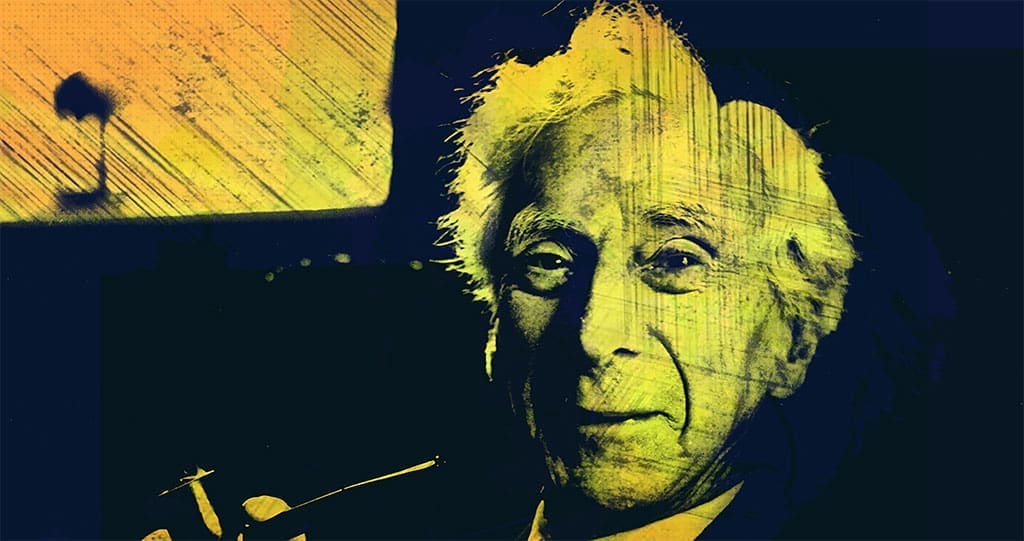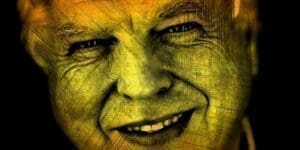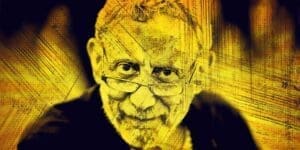Bertrand Russell: a Modern Polymath
Bertrand Russell (1872–1970) was a philosopher, mathematician, logician, historian, and social critic who profoundly influenced the intellectual landscape of the 20th century. Renowned for his ground-breaking contributions to philosophy and logic, Russell also made significant strides in mathematics and became an outspoken advocate for peace, education, and social reform. Born into a prominent aristocratic family in Trellech, Wales, Russell’s upbringing was shaped by a mix of privilege and personal tragedy, which ultimately steered him toward a life of rigorous intellectual inquiry and fearless advocacy. His remarkable legacy spans multiple disciplines, and his commitment to rationality, freedom, and human progress has made him an enduring symbol of the modern intellectual.

All of our content is free to access. An independent magazine nonetheless requires investment, so if you take value from this article or any others, please consider sharing, subscribing to our mailing list or donating if you can. Your support is always gratefully received and will never be forgotten. To buy us a metaphorical coffee or two, please click this link.
Table of Contents
"In his lifetime, Russell was the voice of reason in an age of extremes."
Isaiah Berlin
Early Life and Education
Bertrand Arthur William Russell was born on May 18, 1872, into a politically and intellectually distinguished family. His grandfather, Lord John Russell, had served twice as British Prime Minister and was a pivotal figure in 19th-century liberal reform. However, Russell’s early life was overshadowed by personal loss: his mother and sister died when he was just two years old, and his father passed away two years later. Raised by his grandparents at Pembroke Lodge in Richmond Park, London, Russell grew up in a strict Victorian household dominated by his grandmother’s rigid moral principles and deep religious faith.
Russell’s early education
Despite the austere environment, Russell’s early education fostered his intellectual curiosity. Encouraged by his brother Frank, he immersed himself in mathematics, finding in its logical structure a refuge from the emotional isolation of his upbringing. This passion for logic and clarity would remain a defining feature of his intellectual life. At 18, Russell entered Trinity College, Cambridge, where he studied mathematics and philosophy. Under the mentorship of Alfred North Whitehead, he developed a fascination with the foundational problems of mathematics, which became the focus of his early academic work. Cambridge exposed Russell to a vibrant intellectual milieu, including the secretive Apostles society, where he engaged with contemporaries on topics ranging from ethics to metaphysics.

Achievements in Mathematics and Logic
Russell’s intellectual journey in mathematics reached its first major milestone with the publication of The Principles of Mathematics (1903). In this book, he argued that mathematics could be derived entirely from logical principles, a claim that sparked widespread interest and debate. This work laid the foundation for his magnum opus, Principia Mathematica (1910–1913), co-authored with Whitehead. The Principia sought to establish a rigorous logical framework for mathematics, introducing symbolic logic to formalize mathematical principles. Though immensely complex, it became one of the most influential texts in modern logic, shaping the course of analytic philosophy and laying the groundwork for computer science.

"Russell combined the clarity of a mathematician with the vision of a poet."
A.J. Ayer
Russell’s Paradox
During this period, Bertrand Russell encountered a profound logical dilemma, now known as “Russell’s Paradox.” This paradox, arising in set theory, revealed inconsistencies in naive definitions of sets, particularly in the idea of sets that contain themselves. The paradox had far-reaching implications, prompting significant revisions to the foundations of mathematics. To address these issues, Russell developed the theory of types, a hierarchical system for classifying mathematical objects. This innovation, while controversial, underscored his commitment to precision and rigor in addressing foundational questions.
Inspiring Developments in Artificial Intelligence
Beyond his technical achievements, Russell’s work in logic influenced a generation of thinkers, including Ludwig Wittgenstein, his student and later intellectual rival. Wittgenstein’s Tractatus Logico-Philosophicus (1921) built upon Russell’s ideas, although their philosophical approaches diverged significantly over time. Russell’s influence also extended to other disciplines, inspiring developments in artificial intelligence, information theory, and linguistics.

Contributions to Philosophy
In philosophy, Russell was a pioneering figure in the analytic tradition, which emphasizes clarity, logical analysis, and the use of formal techniques to address philosophical problems. One of his most significant contributions was the theory of descriptions, introduced in his seminal essay “On Denoting” (1905). This theory provided a novel approach to understanding meaning and reference in language, resolving puzzles such as how we can meaningfully discuss non-existent entities. The theory remains a cornerstone of the philosophy of language and has inspired ongoing debates in logic and semantics.
Russell’s philosophical writings were notable not only for their technical precision but also for their accessibility. His A History of Western Philosophy (1945), written during World War II, became an instant classic. The book offers a sweeping survey of philosophical thought from ancient Greece to the modern era, presenting complex ideas in lucid and engaging prose. Although some critics faulted it for oversimplifications and biases, the work cemented Russell’s reputation as a public intellectual capable of bridging the gap between academic scholarship and popular understanding.

Throughout his career, Russell explored a wide range of philosophical topics, including ethics, epistemology, and metaphysics. He advocated for empiricism, arguing that knowledge should be grounded in observation and reason rather than tradition or dogma. His rejection of religious orthodoxy, expressed in works like Why I Am Not a Christian (1927), exemplified his commitment to secularism and rational inquiry. In these writings, Russell challenged conventional morality, promoting a humanist vision of ethical life based on compassion, reason, and freedom.
Social and Political Activism
Russell’s intellectual pursuits were inseparable from his activism. A staunch advocate for peace and social justice, he devoted much of his life to addressing the political and ethical crises of his time. During World War I, Russell emerged as one of Britain’s most prominent pacifists, condemning the war as a senseless waste of human life. His outspoken opposition led to his dismissal from Trinity College and, in 1918, a six-month imprisonment. Russell used his time in prison to write Introduction to Mathematical Philosophy (1919), a work that reflected his enduring commitment to intellectual progress even in the face of personal adversity.

In the interwar years, Russell continued to champion progressive causes, including women’s suffrage, workers’ rights, and educational reform. He believed that societal advancement required an informed and critically thinking populace, leading him to establish a progressive school with his second wife, Dora Black. Although the school faced challenges, it reflected Russell’s vision of education as a means of fostering creativity and independent thought.
During the Cold War, Russell’s activism took on global significance. Alarmed by the threat of nuclear annihilation, he became a leading voice for disarmament and international cooperation. In 1955, he co-authored the Russell-Einstein Manifesto, a call to world leaders to address the dangers of nuclear weapons. This initiative led to the founding of the Pugwash Conferences on Science and World Affairs, which brought together scientists and policymakers to promote peace and security. Russell’s unwavering commitment to disarmament earned him both acclaim and criticism, but his efforts contributed to the broader movement for arms control and non-proliferation.

"He was not just a philosopher; he was a moral and intellectual compass for the 20th century."
Noam Chomsky
Personal Life and Challenges
While Russell’s public life was defined by intellectual achievement and moral courage, his personal life was often tumultuous. He married four times, and his relationships were marked by conflict and instability. His views on love, marriage, and sexual freedom challenged Victorian norms, earning him both admiration and controversy. In his autobiography, Russell candidly acknowledged the difficulties of balancing his intellectual pursuits with his emotional needs.
Russell’s family relationships were equally complex. His progressive educational ventures with Dora Black strained their marriage, and his relationships with his children were often fraught with misunderstandings. Despite these challenges, Russell’s personal experiences enriched his philosophical reflections on human nature, relationships, and the quest for happiness.

Bertrand Russell’s legacy
Bertrand Russell’s legacy is vast and multifaceted, encompassing his contributions to logic, mathematics, philosophy, and social activism. In the realm of logic and mathematics, his work laid the foundation for much of modern thought, influencing disciplines as diverse as computer science, artificial intelligence, and cognitive psychology. His contributions to analytic philosophy continue to shape the field, particularly in areas like language, epistemology, and metaphysics.
Beyond his academic achievements, Russell’s writings and activism inspired generations to question authority, embrace rationality, and strive for a more just and peaceful world. His advocacy for freedom of thought, secularism, and human rights resonated with movements for social and political reform throughout the 20th century. As a Nobel Laureate in Literature, Russell was celebrated not only for his intellectual rigor but also for his eloquence and humanitarian vision.
Russell’s courage in challenging orthodoxy, whether in religion, politics, or science, remains a powerful example of the intellectual’s role in society. His life and work continue to inspire debates about the nature of knowledge, the limits of human understanding, and the ethical responsibilities of individuals in a complex and interconnected world.
Browse 1000’s of Books in Our PromisesBooks Bookshop
Discover more from PEN vs SWORD
Subscribe to get the latest posts sent to your email.

















































What do you think?